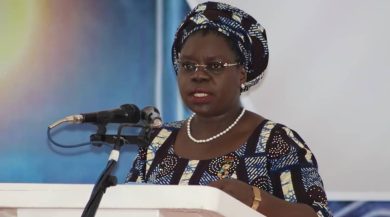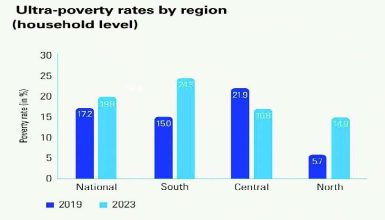Kwacha weakens by 0.58% in Nov
The Malawi kwacha continues to fall, though marginally, against the dollar, Reserve Bank of Malawi (RBM) data shows.
According to RBM figures, the kwacha slightly weakened by 0.58 percent against the United States dollar and closed in November at K1 021.44 per dollar, from the previous month’s position of K1 015.50 per dollar.
In its November Market Intelligence Report, RBM said the kwacha depreciated by 24.1 percent against the US dollar as of end-November 2022 as supply and demand imbalances persist.
“Unlike the developments in the emerging and advanced economies, most currencies of countries in the sub-Saharan Africa region depreciated against the dollar and Malawi was no exception,” said the bank.

The unit is losing its grip despite optimism from monetary authorities that the 25 percent devaluation of the Kwacha effected in May would contain the pressure.
RBM Governor Wilson Banda said devaluation was aimed at giving the currency its true value and aligning it with the then market trends, where the disparity between the black market rate and the official rate was wide.
Meanwhile, gross official forex reserves have decreased by more than half from $847 million (about K877 billion) in December 2019 to $326 million (about K338 billion) in October 2022, or about 1.3 months of import cover.
This is much lower than the recommended 3.9 months of import coverage for a credit-constrained economy such as Malawi, according to International Monetary Fund statistics.
The declining foreign exchange reserves increases the burden on RBM to support the foreign exchange market with liquidity and rein in the kwacha, according to analysts.
But the Economist Intelligence Unit (EIU) earlier projected that the kwacha is still overvalued and will depreciate further against the dollar to trade at K1 224 by December this year as chronic current account deficits persist.
The EIU, a firm within the Economist Group of the United Kingdom which provides forecasting and advisory services, said the kwacha remains overvalued due to a less than sufficient devaluation in May.
The firm said the kwacha traded at about K817 to the dollar before the devaluation and remained weak in August at about K1 026.41 to the dollar.
Reads the report in part: “The kwacha regularly comes under pressure, which has been exacerbated by high global commodity prices.
“As a result, foreign exchange has continuously been in short supply, leading to shortages of key commodities like oil in the country.”
Market and economic analyst Bond Mtembekeza also observed that if nothing radical is done, the kwacha’s continued fall is inevitable, a situation which will have an impact on inflation and general economic growth.
He said a depreciated exchange rate brings about imported inflation.
“Considering that Malawi predominantly imports its raw materials for production and manufacturing, a depreciated exchange makes these raw materials expensive and, therefore, producers don’t import as much and production declines which affects economic output and growth,” he said.





